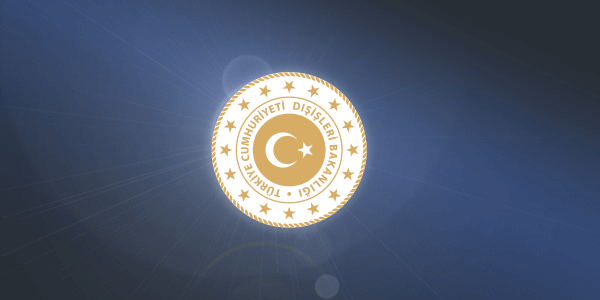- ANNOUNCEMENT ON DONATIONS TO SUPPORT THOSE IN NEED FOLLOWING THE EARTHQUAKES IN TÜRKİYE-AFAD POUND STERLING ACCOUNTS Turkish Embassy In London 14.02.2023
- ANNOUNCEMENT ON DONATIONS TO SUPPORT THOSE IN NEED FOLLOWING THE EARTHQUAKES IN TÜRKİYE-TURKISH RED CRESCENT POUND STERLING ACCOUNTS Turkish Embassy In London 13.02.2023
- ANNOUNCEMENT ON RELIEF ITEMS TO SUPPORT THOSE IN NEED FOLLOWING THE EARTHQUAKES IN TÜRKİYE Turkish Embassy In London 10.02.2023
- ANNOUNCEMENT ON DONATIONS TO SUPPORT THOSE IN NEED FOLLOWING THE EARTHQUAKES IN TÜRKİYE-AFAD POUND STERLING ACCOUNTS Turkish Embassy In London 08.02.2023
- No: 25, 1 February 2026, Regarding the Eighth Meeting of the Türkiye-Kazakhstan Joint Strategic Planning Group Republic Of Türkiye Ministry Of Foreign Affairs 01.02.2026
- No: 24, 1 February 2026, Regarding the Landslide at a Mine in the Democratic Republic of the Congo Republic Of Türkiye Ministry Of Foreign Affairs 01.02.2026
- No: 23, 31 January 2026, Regarding Israel’s Attacks on the Gaza Strip Republic Of Türkiye Ministry Of Foreign Affairs 31.01.2026
- No: 22, 31 January 2026, Regarding the Terrorist Attacks in Pakistan Republic Of Türkiye Ministry Of Foreign Affairs 31.01.2026

Monday - Friday
9:00 - 12:30 / 14:00 - 18:00
Holidays 2026
| 1/1/2025 | ||
| 4/18/2025 | Good Friday | |
| 4/21/2025 | Easter Monday | |
| 5/5/2025 | Early May Bank Holiday | |
| 5/26/2025 | Spring Bank Holiday | |
| 6/6/2025 | ||
| 8/25/2025 | Summer Bank Holiday | |
| 12/25/2025 | Christmas | |
| 12/26/2025 | Boxing Day |
+44 203 608 80 90






 INVEST IN TÜRKİYE
INVEST IN TÜRKİYE